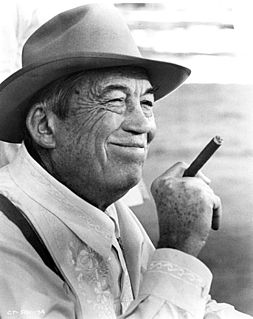A Quote by Semir Zeki
Just let the artist sign an empty canvas or a frame, with the inscription, 'I had such and such a concept in mind' for this work. The artist then need not bother with producing the work, and therefore need not be worried about being dis-satisfied. All he or she needs to do is to sell it to a collector. The collector will have the guarantee that the artist thought about the work, even if momentarily, and therefore be satisfied.
Related Quotes
A work of art does not need an explanation. The work has to speak for itself. The work may be subject to many interpretations, but only one was in the mind of the artist. Some artists say to make the work readable for the public is an artist’s responsibility, but I don’t agree with that. The only responsibility to be absolutely truthful to the self. My work disturbs people and nobody wants to be disturbed They are not fully aware of the effect my work has on them, but they know it is disturbing.
When the artist is truly the servant of the work, the work is better than the artist; Shakespeare knew how to listen to his work, and so he often wrote better than he could write; Bach composed more deeply, more truly than he knew, Rembrandt's brush put more of the human spirit on canvas than Rembrandt could comprehend. When the work takes over, then the artist is enabled to get out of the way, not to interfere. When the work takes over, then the artist listens.
It's tempting to think, 'This is silly. I'm an artist. I care about my work, my work is first. I don't care about what kind of dress I wear... That's so secondary to me.' But if you care about your work... then you need to take this part of it just as seriously as you would going into an audition and going into work.
Why was the painting made? What ideas of the artist can we sense? Can the personality and sensitivity of the artist be felt when studying the work? What is the artist telling us about his or her feelings about the subject? What response do I get from the message of the artist? Do I know the artist better because of the painting?
You just have to work really hard and throw everything into it. ... It's really hard to be an artist, and even if you do work really hard, there's no guarantee about anything. There's no advice you can give someone that things will somehow work out, but you can talk to people about how they can make art a big part of their life.
An album for me as a teenager in the '70s was a fully formed concept. It was a body of work from an artist I liked or trusted or who excited me. Maybe one of the songs is really poppy and you listen to it on the radio as a hit single and then more of the world is about to find out about this artist by buying the record.
I decided that the whole idea of what it means to be an artist was that somehow you are ontologically oriented toward poverty : "As an artist, you don't make money." I had to figure out some kind of way to guarantee that I'd be able to continue doing the work that I wanted to do, whether I made money from the work I was doing or not.




































